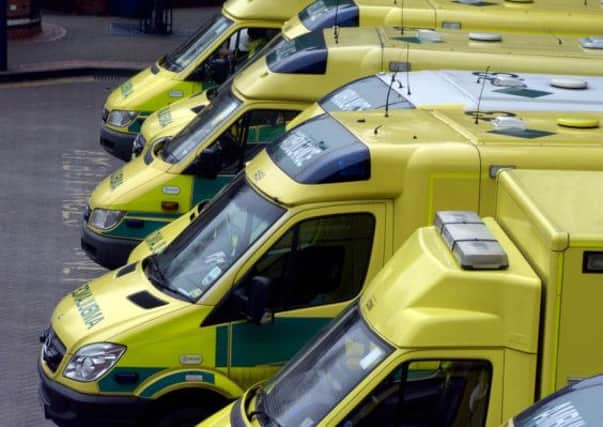Dialysis patients’ fury over transport delays triggers warning ‘lives are being put at risk’


Angry patients say hold-ups are cutting short treatment and causing them distress and worry.
Taxis have been drafted in to transport people for care after changes in November by Yorkshire Ambulance Service which is said to have run up cab bills in excess of £10,000 in the weeks leading to Christmas alone.
Advertisement
Hide AdAdvertisement
Hide AdThose affected, who blame NHS cost cutting, are in a network of seven dialysis centres at St James’s and Seacroft hospitals in Leeds, a unit in Beeston, Leeds, and others in Pontefract, Dewsbury, Huddersfield and Halifax.
Janice Richardson, 52, of Horsforth, Leeds, who has dialysis three times a week at Seacroft Hospital, said travel had become a “nightmare”, with delays of up to two hours. She said: “A lot of patients have had their time reduced on dialysis because they’re getting in so late. I don’t understand how it’s so difficult for them to sort it out because it’s the same patients at the same time on the same day every week.”
Another patient Tony Waterworth, 77, of nearby Rawdon, said: “These are seriously ill people and they don’t need all this worry and anxiety. We’re on a life sentence for this treatment unless we get a transplant. They’re putting people’s lives at risk.”
A spokesman for the GP-led clinical commissioning groups in Leeds, which pay for services, said it was aware of the travel delays and cuts to treatment times.
Advertisement
Hide AdAdvertisement
Hide AdHe said: “We are working with our providers in implementing actions to ensure we can provide the best possible care for our patients. This sometimes includes our providers using taxis to transport patients to meet our objective of providing high-quality and timely care.”
Alan Baranowski, of Yorkshire Ambulance Service, said extra staff were being recruited. “We would like to apologise for any delays which have been experienced by renal patients when being taken for dialysis treatment by our patient transport service. While our overall performance for getting patients to hospital on time compared to last year has got better, we do recognise the need for further improvement.”